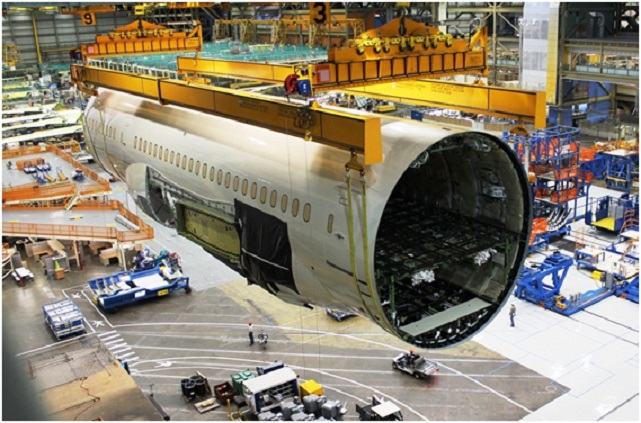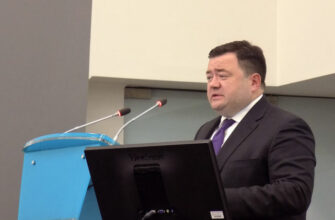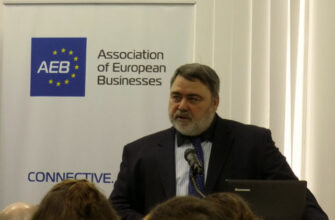Preface of “E-Vesti”. We draw the attention of our readers to this exclusive article, in which the Advisor for the Basque Government Mr. Angel Landabaso tells our readers about the current state of Russian-Spanish relations, describes his region and invites the representatives of Russia and Spain to think about the development of bilateral relations.
Let’s hope that the Ministry of industry and the Ministry of economy of Russia, headed by their energetic Ministers, as well as the main counterparts of the Spanish side (Novatek, for example), will receive rich food for thought after reading this information.
- The Basque Country
I remember that my mother used to say to Russian visitors in Bilbao that when returned back to Russia not to forget to bring her warm greetings to the people, to the forests, to the cities- specially to Moscow, a strong emotional link to a country where she spent her infancy and youth. My parents arrived as children to the URSS and remained for 22 years- sons of the Spanish republicans after the civil war. I was born in Moscow, that I left with less than one year old to “return” to Bilbao in the Basque country.
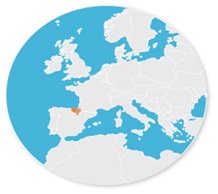
Euskadi, the Basque name for an autonomous region in the north east of Spain is a country of 2 million inhabitants, bordering France. And today is a unique case of a region with political- its own government, and fiscal autonomy- capacity to decide its taxes, in Spain and Europe. Now outshines the rest of Spain with a better credit rating than central government, the lowest regional unemployment and borrowing costs half those of other regions.
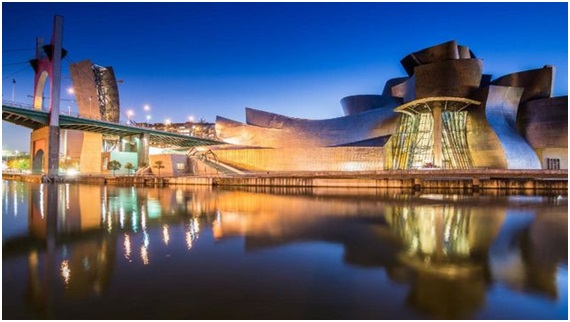
- The industrial profile of the Basque country
As an example: in a factory set in a forest, a multi-armed robot hisses behind a glass screen, lights flickering as it prepares to take in cobalt-blue tiles to stitch into solar panels. The machine could be shipped anywhere, from Germany to Kazakhstan, and business is flourishing. The Basque region’s secret has been in sticking to manufacturing over the property and tourism industries that ended in economic crisis elsewhere in Spain when a real estate bubble fuelled by easy credit burst in 2009.
If we didn’t export, we’d be having a hard time, but thanks to exports we could overcome the crash on 2009. Survival comes from not depending on a single market, but on a number of markets. The Basque Country is Spain’s 5th largest regional economy, with a gross domestic product of 66.1 billion euros, accounting for around 7% of national GDP. We have the lowest unemployment rate in Spain at 9.3 %, compared with 14,1% nationally. The region has the highest per capita output in Spain – 31,288 euros compared with a national average of 23,271 euros and a EU average of 25,134 euros.
There was a clear bet on keeping the industrial sector strong here (almost 19%of GDP) and a bet on modernising (industry 4.0 strategy) those traditional sectors, such as iron, steel, energy and small and medium-sized companies that make all those components for the energy and car sectors. That is probably one the main vectors of the Basque economy. Also Basque industry has been open to internationalization. That process of innovation and internationalisation was much faster and much more committed with strong public and private support, than in the rest of Spain.
Despite the crisis, still in the Basque country there are world industrial leaders: BBVA, the country’s second-largest bank, is a major player in South America, source of more than half its revenues. Gamesa is the world’s fourth largest manufacturer of wind turbines. CAF, a producer of rolling stock, sells trains as far as the United States and China.
- Relations with Russia
The roots of the Spanish position towards Russia lie in the perception of distance between the two countries and the absence of elements of genuine strategic weight at stake. Russia, for example, is one of the main suppliers of oil to Spain (14% of the total in 2013), but the supply sources of crude are highly diversified and, at the same time, Russian gas is not consumed in the Iberian peninsula. Political and diplomatic relations are fluid, but they are neither special nor truly strategic for either of the two beyond the official rhetoric. Until now, the impact of the EU-Russia sanctions on Spain has been moderate and highly concentrated in the agricultural sector. The Russian countermeasures in response to the EU sanctions may mean losses of some €550 million annually to agricultural producers, which are likely to increase due to the future closure of the market.
Russian investment in Spain is actually very limited. While in the three-year period 2008-2010 it amounted to €31.5 million, in 2012-13 it grew to €114.2 million. Among the sectors that have attracted the most resources are real estate, hotels and catering. Also important are investments in commercial activities, those related to the purchase of vehicles, and those related to tourism. That is to say, the greater part of Russian investment in Spain is directed to the attention of those Russians temporarily or permanently located in Spain. In this sense, it is worth pointing out that in 2012 Russians were the second largest purchasers of houses in Spain after the British.
Spanish investment is greater in volume than that coming in the other direction, but it is still not particularly large. From 2008-10, this investment amounted to €528.4 million but fell over the next three-year period to €218.2 million. Spanish investment is concentrated in the sectors of metal products and in the manufacture and sale of vehicles. In the past three years some significant investment has been made in the chemical sector and, in certain cases, investments have been made in the finance sector. In these cases, it is also unlikely that the sanctions will have a particularly negative effect and it does not appear that the Russian government will adopt special measures (countersanctions) that will harm them.
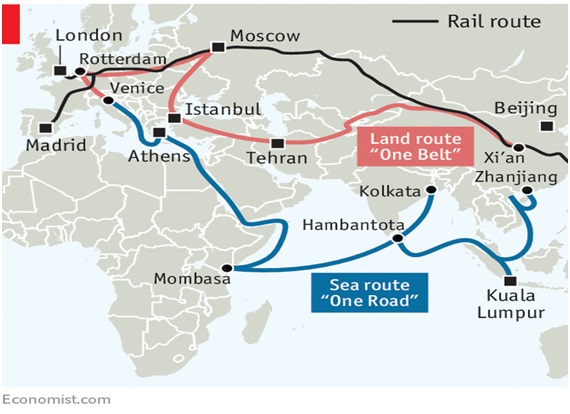
One of the most significant collaborations between Russia and Spain is in the energy sector, which has, in the end, been included as part of the EU sanctions on Russia.
In its official narrative, Spain gives strategic character to its relations with Russia. However, it should be born in mind that the link is not genuinely strategic and there is an evident asymmetry in the degree of importance given to the relationship by one side and the other. Seen from Moscow, Spain is a potential ally in a broader strategy of relations with the EU, but one that has little importance of its own. Traditionally, Spain has shown either scant interest in Eastern Europe or a degree of suspicion that the expansion of the EU towards the east would reduce European interest and aid to the southern border and the Mediterranean as a whole.
The institutional inertia shaped by geographical distance, the good image that both countries have of each other—frequently based on cliché, and the absence of historical conflicts with Russia should be remembered. Spain has shown very little enthusiasm for the adoption of sanctions against Russia. In large part this is for economic reasons.
Current economic relations with Russia are modest. In 2013, Spanish exports brought in a total of €234bn: of those only €2.8bn came from Russia, putting the country in 19th place on the list of importers. Direct investment from Russia to Spain is minimal, and that by Spain into Russia is low at only €218 million in 2013. Nevertheless, after years of effort by Spain, the relationship is beginning to take off. Until now, the three sanctions packages imposed on Russia by the EU and the Russian countermeasures have had limited impact in Spain. As noted above, the losses may be estimated at around €550 million annually. The main preoccupation of the Spanish government is the concentration of this impact in the agriculture and livestock sectors of three regions: Aragon, Catalonia and Valencia, not in the Basque Country.
4- New opportunities for Basque – Russian relations
The Basque Country develops its own commercial promotion at international level, under the umbrella of Spain and the EU but with its own approach, mainly seeking industrial partners.
It seems possible to develop activities linking technological cooperation (innovation) with direct partnerships on industrial projects. I have to be remembered that The Basque Country has the most important port of the northern part of Spain, being the 5th in the country. Also the airport in Vitoria is the 4th in Spain, and it is specialised on international trade of merchandises.

A programme to increase mutual awareness and define specific opportunities can be prepared by the existing organisations developed ad-hoc, both public (Basque Government) and private (industrial clusters). In 2020 an event along these lines could be prepared to facilitate concrete action.
